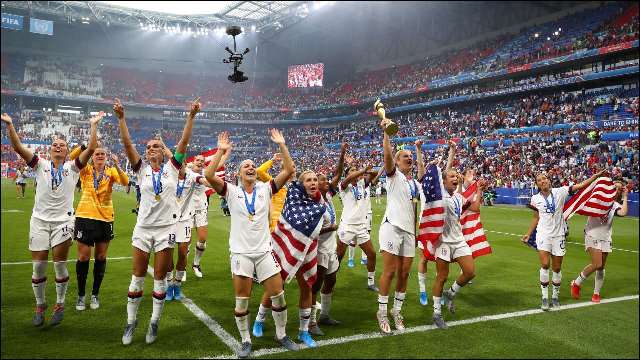Apart from its supreme entertainment, the FIFA Women’s World Cup has some important lessons for us.
Execution trumps reputation
Predicting results in this World Cup has been very challenging. One reason is that results are based on what happens in the arena on the day in question. Success is tied to doing what is required when it counts and not on reputation.
The application of this principle for us is twofold:
1. We need to avoid complacency and taking things for granted. We must consistently go the extra mile in our preparation to ensure that we excel when we are required to deliver.
2. We can take hope in situations in which we are harbouring doubts that we might not be good enough. When challenges appear daunting and we seem to be over-matched, we need to recall that if we show up and be at our best, we might be surprised by the results.
Focusing on history is looking backwards. Look ahead, execute on the day and create your history!
Yellow cards and Consequences
In the game of football a team can fail to advance to the next round based on having accumulated more yellow cards than another team. Key players of other teams were barred from playing because of yellow card bans.
Many yellow cards are the result of thoughtless action. The first yellow card is often earned casually and not deemed to be of much consequence. Then a genuine error or critical risk-averting situation leads to another card and compounds the issue.
Lesson
We need to pay attention to those moments of carelessness and sloppiness that can so easily creep into our lives and our work.
There is talk of “being present in the moment”. The suggestion is that we should be engaged in the current situation and not wander off into dreamland or be distracted. Remaining focused is challenging but the rewards are worth it.
One moment of inattentiveness can produce serious negative consequences. Being present is a gift – accept it.
Impact of the Coach
It may be argued that Jill Ellis (USA Women’s Team head coach) executed strategies that got the upper hand on the Netherlands.
There is little question about the vital role that coaching has played in the World Cup.
When any team gets to the semi-finals by scoring most of their goals from set plays, who should get the credit?
When a team knits tightly together and plays as a cohesive unit, where must the kudos go?
Managing stars and individuals with large egos is challenging. Leading diverse personalities requires special skills.
Lesson
We should recognize the importance of leadership in our environment.
We need to respect the challenges faced by leadership personnel and appreciate the important role that leaders play.
Another consideration is that the capacity to coach and lead effectively demands proper preparation. Leadership is more than popularity and seniority. Training and ongoing development is essential.
Rotating Leadership
In football it is not strange to see teams rotate the captaincy band from game to game. This might go towards satisfying egos and also sent the message of the need for shared responsibility.
However, team leadership is not about the changing of an armband. Team leaders play a vital role in meeting objectives. Their impact needs to be felt well in advance of the time to deliver. They lead by example in the preparation and they should be integrally tuned in to what is taking place behind the scenes.
Lesson
The harsh reality is that individuals need to be prepared for leadership. There are unique competences that need to be taught and reinforced. Of course, an option is that a group could identify a set of individuals with leadership potential, prepare them to fulfill the role and then rotate the responsibility.
There is surely no doubt that any team that lifts the much coveted World Cup trophy would have been led by a coach who motivated his/her team to execute a winning strategy when it counted most.
Source: Success with PeopleTM Academy







